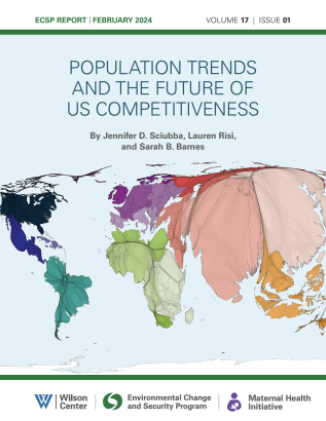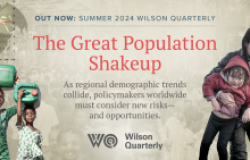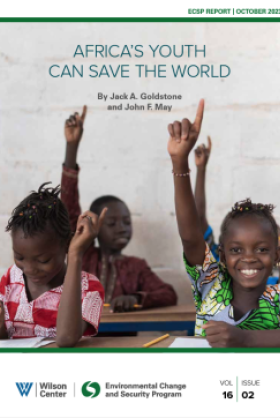Population Trends and the Future of US Competitiveness


Demographic issues intersect with the gamut of policy priorities on the congressional agenda: the economy, health care, education, immigration, foreign policy, and Social Security. In the latter case, for example, projections indicate that an aging US population and the decline in the worker-to-beneficiary ratio will exhaust Social Security funds by 2040, in the absence of reform. As host to the largest immigrant population worldwide, the United States has seen not only the benefits from a growing workforce in the face of low fertility rates, but also political division in response to that immigration.
Although demography is important, how population trends influence policy outcomes is often overlooked or misunderstood.
Some population issues are an immediate and direct concern— as one sees clearly in the increased mortality rates due to the COVID-19 pandemic, or in spikes in the number of asylum seekers in the wake of conflict or instability. As all levels of government continue to prepare for such “shocks,” understanding demography is necessary for foresight exercises to anticipate them. Yet population dynamics are also important underlying drivers of long-term shifts.
The same situation holds true in other countries, and thus impacts the United States’ global economic competitiveness. If regions and countries with relatively larger and younger workforces than Europe and the US, like sub-Saharan Africa or Indonesia, attract global capital and become strong economic hubs through partnerships with US competitors, the United States could lose its edge.
Population is a powerful dynamic. Yet US policy makers would be wise not to see any demographic trend as deterministic, whether at home or abroad. Doing so can lead to severely under- or overestimating the economic and national security effects that trends create. No demographic trend is inherently good or bad; national responses matter. With the right investments, we can ensure the world stays on a path towards greater prosperity in the future.
About the Authors

Environmental Change and Security Program
The Environmental Change and Security Program (ECSP) explores the connections between environmental change, health, and population dynamics and their links to conflict, human insecurity, and foreign policy. Read more

Maternal Health Initiative
The Wilson Center’s Maternal Health Initiative (MHI) is dedicated to improving the lives of women, adolescents, and children around the world. MHI convenes experts from around the world to discuss solutions to end preventable maternal and newborn deaths and to navigate gender-based global health issues and their links to foreign policy. MHI explores a wide range of policy-related topics, including gender equity, global health, health care workforce and systems, caregiving, gender-based violence, workforce participation, girls’ education, and sexual and reproductive health and rights. MHI is globally focused with additional attention to women and girls living in humanitarian settings. Read more
















